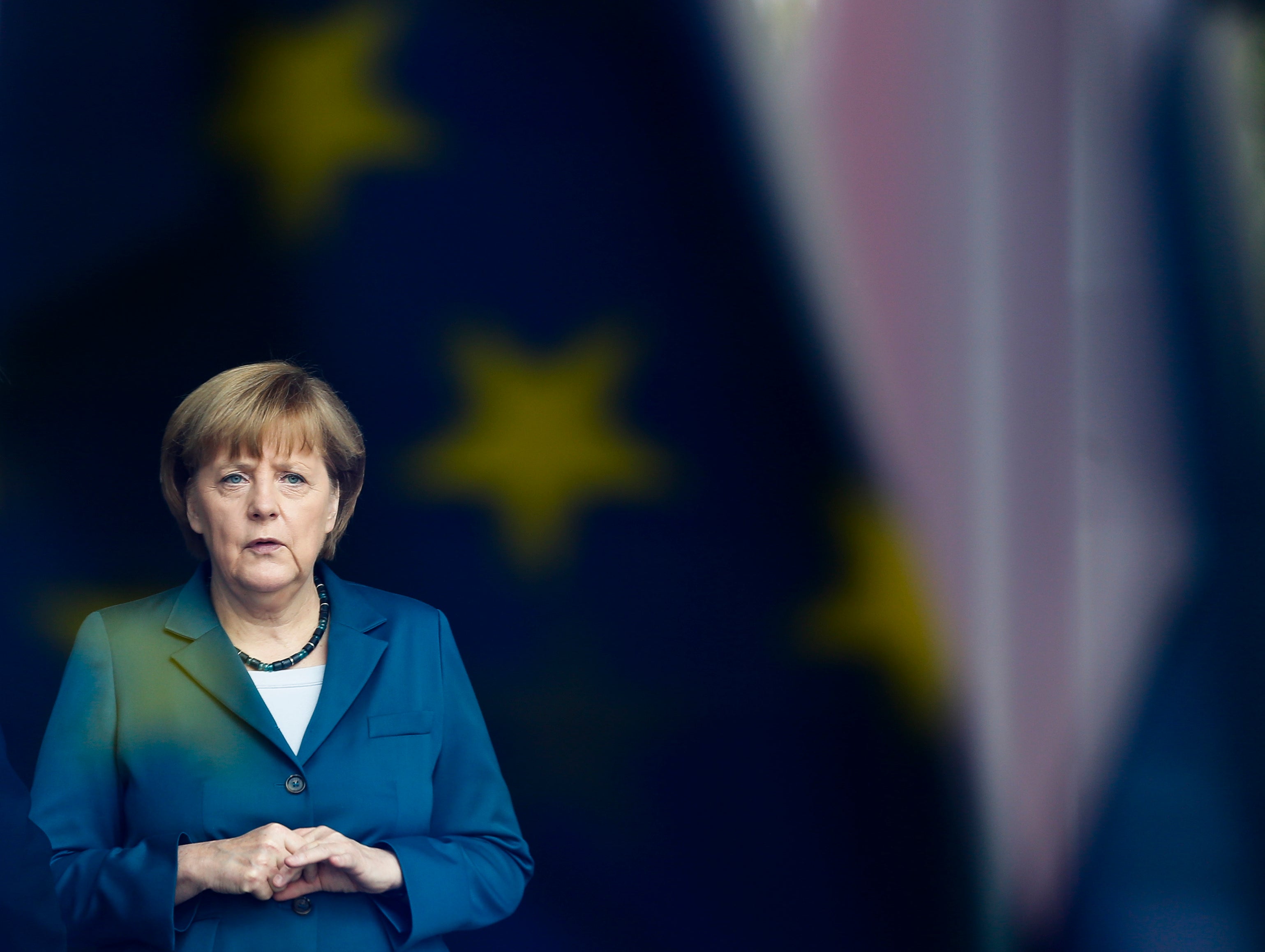The likely winner of the German election? Macron and France
Sean O’Grady explains why the successor to Angela Merkel is likely to lack her authority in Europe, thus shifting power towards Paris

She is not quite gone yet, but already the shifts in the balance of power can be sensed as Angela Merkel edges, modestly as ever, from the political stage. Not so much, in fact, in Germany, where the two leading candidates are locked in an embarrassing struggle to be the “continuity candidate” to succeed her, mimicking her gestures and adopting her logical, rational approach to policy making. The more momentous change will be felt in Europe, and in particular in the dynamics of the European Union.
While the German election on Sunday seems unlikely to produce a clear winner, there is one man, and one country that has gained an obvious advantage from Merkel’s retirement – Emmanuel Macron, president of the French Republic. With Merkel gone and the UK too, and Italy in no position to offer political leadership to Europe, it will fall to France once again to chart the future course of the union, as it has since the European project began, not long after the Second World War. Merkel’s potential successors, in their last television debate, spent a good deal of time discussing the merits of President Macron’s proposed strengthening of European defence cooperation – a French not a German initiative. When France talks about the EU inheriting its status as a permanent member of the UN Security Council, it is on the clear tacit understanding that a French veto will still be operative, though involving the others, especially Germany, will leverage the EU’s strengths to French advantage. In the latest geopolitical spat about the nascent Australia-UK-US pact, Aukus, all the German leaders take the side of France, jilted by the Australians. Simply in terms of mandate and authority, it will now be Macron who is the pre-eminent European political personality, and French interests that will be best served by European unity.
It has in fact been the case, on and off, for the entire history of the European Communities/Union. Even as German industrial strength recovered and overtook that of France, it was France that exercised the political leadership, in an era when German diplomacy was deliberately low-key and restrained. In most of the rows about integration, usually with the British, the Germans tended to take the French side, and were in any case enthusiastic Europeans, even if it meant sacrificing the German Mark. There were some brief interruptions, such as when Tony Blair cobbled together an informal club of the UK, Spain and Poland to represent what Donald Rumsfeld called “the New Europe”. With the Dutch and the Scandinavians, the British and Germans could sometimes cooperate when the financial integrity of the EU was threatened.
Subscribe to Independent Premium to bookmark this article
Want to bookmark your favourite articles and stories to read or reference later? Start your Independent Premium subscription today.
Join our commenting forum
Join thought-provoking conversations, follow other Independent readers and see their replies